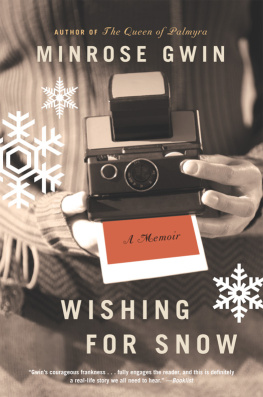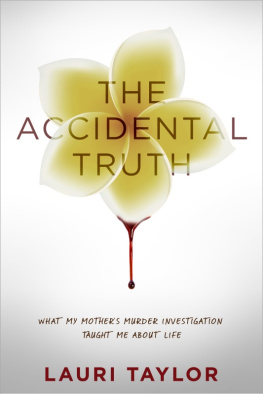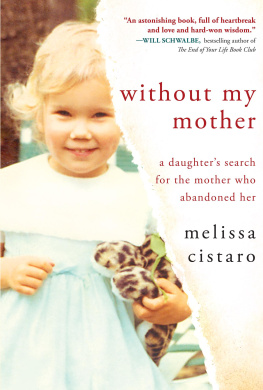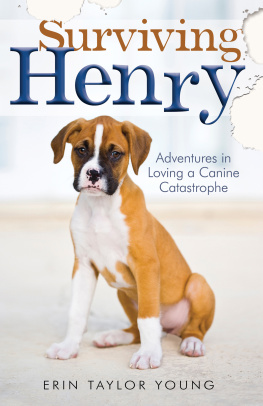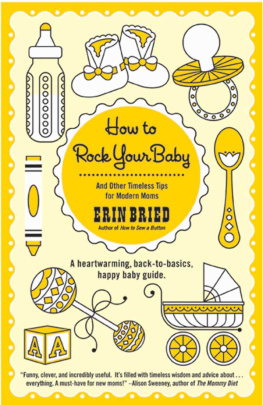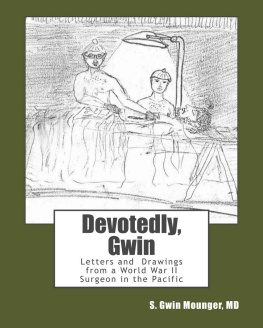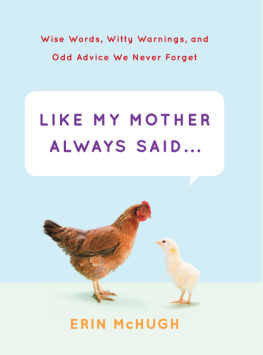Diary of Erin Taylor Clayton
DO NOT DISTURB
Friday November 21, 1930
Well I have started to school again as usal this morning. Mama called me her little sunshine. I realy do think I am helping her get over GranPapa being dead. I do hope I can altho I am so hurt my self. Well reccess is over and we have thought up a new game. I cant write any more right now because we are going to have a lesson so goodby for a little while. Gee Whiz! I have to stay in and I was just whispering. If Frances hadnt turned around Miss Olivo wouldnt have ever known I was whispering.
Monday November 24, 1930
I am writting a story! Boborae Stone is making up the names of the stories and I am writing them. She is helping me a little bit. I sure do hope it will snow tonight.
LAMENT
Already you begin to fade,
You who dreamed us
as we might have been:
Tonight I dream you
mother yet child again.
My child anybodys child
one of those sad
incredibly wide-eyed waifs
shivering on the last cold shingle
of the world.
Go back now I say go back
its too late
you are too heavy for me to hold.
ERIN CLAYTON PITNER
I am the daughter of the woman who wrote this poem. My mother was born in the July heat of a Mississippi summer in 1921. Today is her birthday, the go-for-broke dive through the swampy birth canal, my poor grandmother, her nerve endings at fever pitch, setting her teeth. I imagine my still-young grandmother (Minrose the Latin teacher whose students always win the state tournament, only thirty-one) propped on her elbows, drenched from head to toe, swearing over her monstrous belly, as we all do in this moment, that this stubborn one will be her last. It is late afternoon, the time of day when overripe figs tremble and slip to earth without a sound. Some are so distended with nectar they crack and leak, drawing wasps and yellow jackets to straddle and sip.
My mother would be eighty this first day of July had she not left this life in transit. She died in the back of an ambulance summoned to the nursing home (ambulance attendants are known to call this The Hearse Run) where she spent her last days fewer than twenty miles from her birthplace, her own belly bloated with the poison fluids of reproductive cancer. Her wish for pencil and paper the main thing on her mind.
Fourteen years ago:
I drive into my carport to find two large boxes piled up next to the door. My first shipment from Mississippi after my mothers death. I open them right there on the carport and find my inheritance in pieces. A crystal bowl crushed into slivers. Two brass candelabra in chunks broken at the joints. A glass plate cracked in half. (Notably absent: items 4 and 5 on the list of items willed to mean antique ring with seven diamonds and the family silverboth probably long gone to pay the doctors, the psychiatrists, the nice private institution, the grim state institution, and finally the nursing home; or perhaps just lost.)
These broken items have been packed with newspaper and the pillows from Mamas sofa. The satin throw pillows were once bright colors. My mother loved color and liked to give color new names. She called these rusty apricot. Now the satin feels oily and damp. There are four of the pillows, and they smell like Mamas house in the last years. Its an odd smell, something Ive never smelled anywhere else, not just the odor of decay, or the total absence in the house of anything remotely close to being clean, but the smell of the misuse of thingsthe meals eaten off good china in closets, a dark sweetness permeating sheets and towels and clothes and upholstery, the mysterious stains, a relish jar under every bed, each with its own fork laid, with practical intent I assume, a few inches to the left of the jar. Rotten meat. Other things I cannot speak of.
In those days there were things that were one thing and then became another, taking on the madness, making me jump and pant when I would find them behind doors or under furniture, scaring me to death when all they might be were just things, ordinary things. The hundreds of pieces of material cut into shreds and put in the same old white dirty clothes hamper I had put my dirty clothes in and my brother and sister put their dirty clothes in all of our child lives wherever we had lived. Or, arranged like an open fan on the closet floor with phone book and jars, dozens of pages of text Erin Taylor has hand copied from someones scholarly book. (Later I will discover that it is my book she has copied word by word.) On each side of the closet floor a pleasant line of shoes, covered with lists in my mothers handwriting of people and their phone numbers, the beginning of a list of everyone she knows in town. The lists are, insofar as I can tell, functioning to keep the shoes clean. The jars, a greasy tattered telephone book, and a list of names like a party list or a Christmas card list: everyday things strangely transformed by usage or placement.
Now, the sickness has come to me in a box. It is in the pillows. I can smell it. I am not imagining this smell. My husband smells it too. He says nothing, but his face tightens, and without asking or being asked, he takes the pillows out to the storage shed in the backyard and throws them in with the lawn mower and rakes and fertilizer. At night I think about them lying there and pondering what is going to happen next in their strange lives as pillows.
After a few nights I begin to dream that they are unhappy. They want to be dry-cleaned. They want to come inside and lie on my couch. They are thinking they can toast themselves in front of the fire and look out the window. They are wanting us to rest our heads on them and take dreamy naps on hot summer afternoons, or throw them at each other in fun.
One night I dream that they are climbing over the lawn mower and working the lock to the shed. The next day I gather them up fast and throw them in the garbage can. For days I picture them there, wounded by this unseemly treatment, like cousins who knock at the door and are turned away for no good reason.
At 8:17 on Tuesday morning I am watching from behind my curtain for the garbage truck to round the bend in my street. I fully expect that there will be some accident, a spillage, and the pillows will make their getaway. Then, the clank of the truck making the bend and, before I can take a deep breath, the garbage men have picked them up and thrown them into the back of the truck. This, I feel, is a miracle of vast proportion.
By now they have rotted away in some overcrowded landfill on the side of a mountain in Virginia. I know that, as I write, they are no longer intact, they are no longer the place of the Bad Smell. As the months and years have rolled by, they have peacefully dissolved. They have lost my mothers smell and her stains.
My mother was given the double name of Erin Taylor after her maternal grandmother, Erin Lee Taylor Kincannon, a woman not known for her gentleness or good luck, her husband Vann and one daughter both suicides by the less-than-neat method of a gun to the head, and another more fortunate daughter the president of a womens college Up North, her long-term living arrangements with a woman physician named Doctor Patty never discussed in public or private. One son, Vann Junior, after enlisting in the marines at age nineteen to do his share, according to the clipping in my grandmothers scrapbook, in keeping the foot of the Hun off the sacred soil of America, became a newspaper reporter and then, either consecutively or simultaneously, a paregoric drinker and drug addict (what drug addict meant in those days is not clear; drug fiend was what he was called) immortalized in several sketches of Mississippi. As a girl, I would sit outside on my great-grandmothers front porch steps with Uncle Vann, who was even then skin and bones. (Something Had Happened to Him in the Great War, it was whispered, but no one knew what.) Hed be sipping paregoric and eating cloves to cover the smell. I used to sit leaning against his bony knees, chewing cloves and inhaling the kick from the small bottle he held hidden between cupped hands. A couple of decades later, I would rub paregoric on my baby daughters gums (such things were then permissible, even advised). When she would quiet down, which she invariably did, I would lick the stuff off my fingers and find myself flooded with pleasure.

